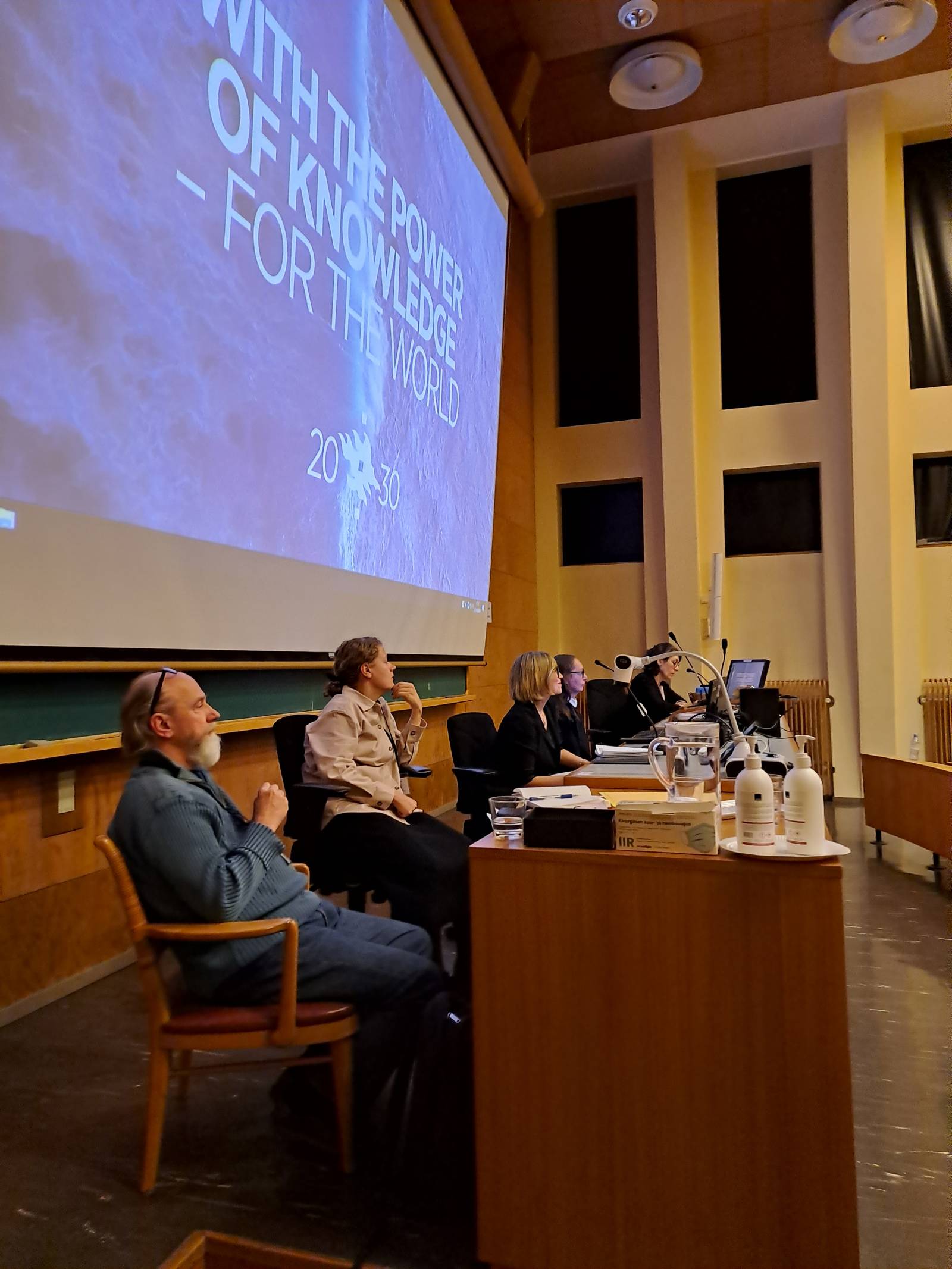Readers of this website may remember our news item from January reporting the research funding given to TaRC leader Katja Lehtisaari and her colleagues, Olga Dovbysh (University of Helsinki) and Elena Rodina (human rights organisation Civil Rights Defenders).
Their project, which focuses on independent Russian media in exile, has been ongoing since the spring, and now first results are beginning to emerge.
On 27 October, researchers of the project participated in the Aleksanteri Conference at the University of Helsinki with a panel “Resilience/Resistance/Compliance: Russian Journalistic and Activist Communities in Exile and in the Country”.
TaRC leader Katja Lehtisaari chaired this panel on Russian journalistic and activist communities, with Elena Rodina and Olga Dovbysh presenting preliminary findings from the project.
The preliminary findings of the study highlight the struggle between immobility and forced mobility. Over 1,000 journalists have left Russia since the invasion of Ukraine and despite relative stability, the journalists face several challenges, like uncertain futures and difficulty making long-term plans.
“Professional identity serves as a vital resource for the journalists in exile, helping them maintain significance and agency,” Dovbysh said in the presentation.
Other panelists covered the subject matters from multiple perspectives: Françoise Daucé (EHESS/CERCEC, France) presented findings on the environment of distributed oppression and fragmented media, Ekaterina Kalinina (Stockholm University) reported results on the transformation of urban activism in Russia and rapidly evolving attitudes of activists and Jarmo Koponen (University of Helsinki) reported on the division of Russian-language media into Western and Russian versions.
The panelists presented previously unreleased research findings on Russian journalistic and activist communities, allowing the researchers to share their insights and foster informed dialogue on these subjects.
You can read more project updates on the project’s website (University of Helsinki).

